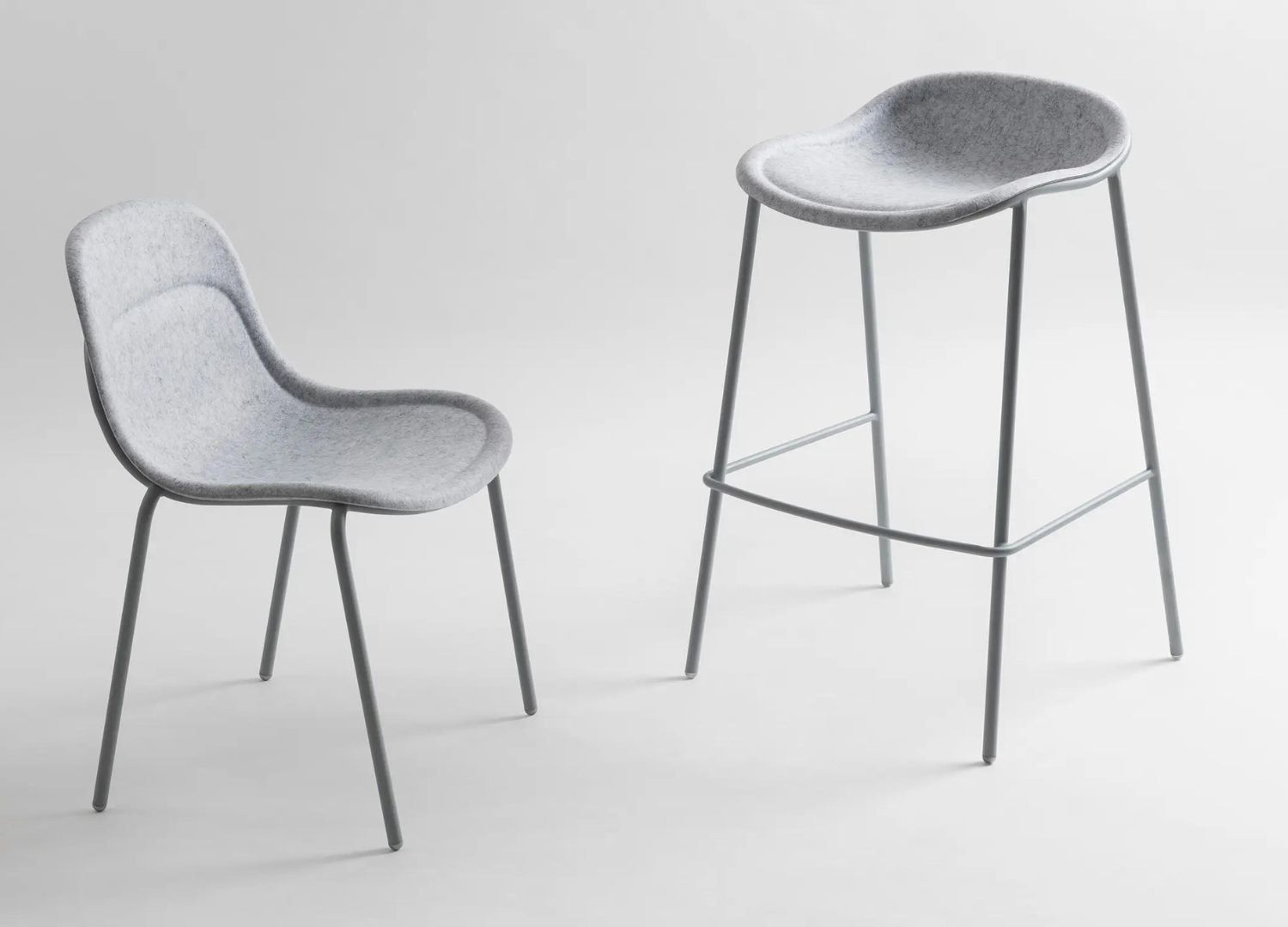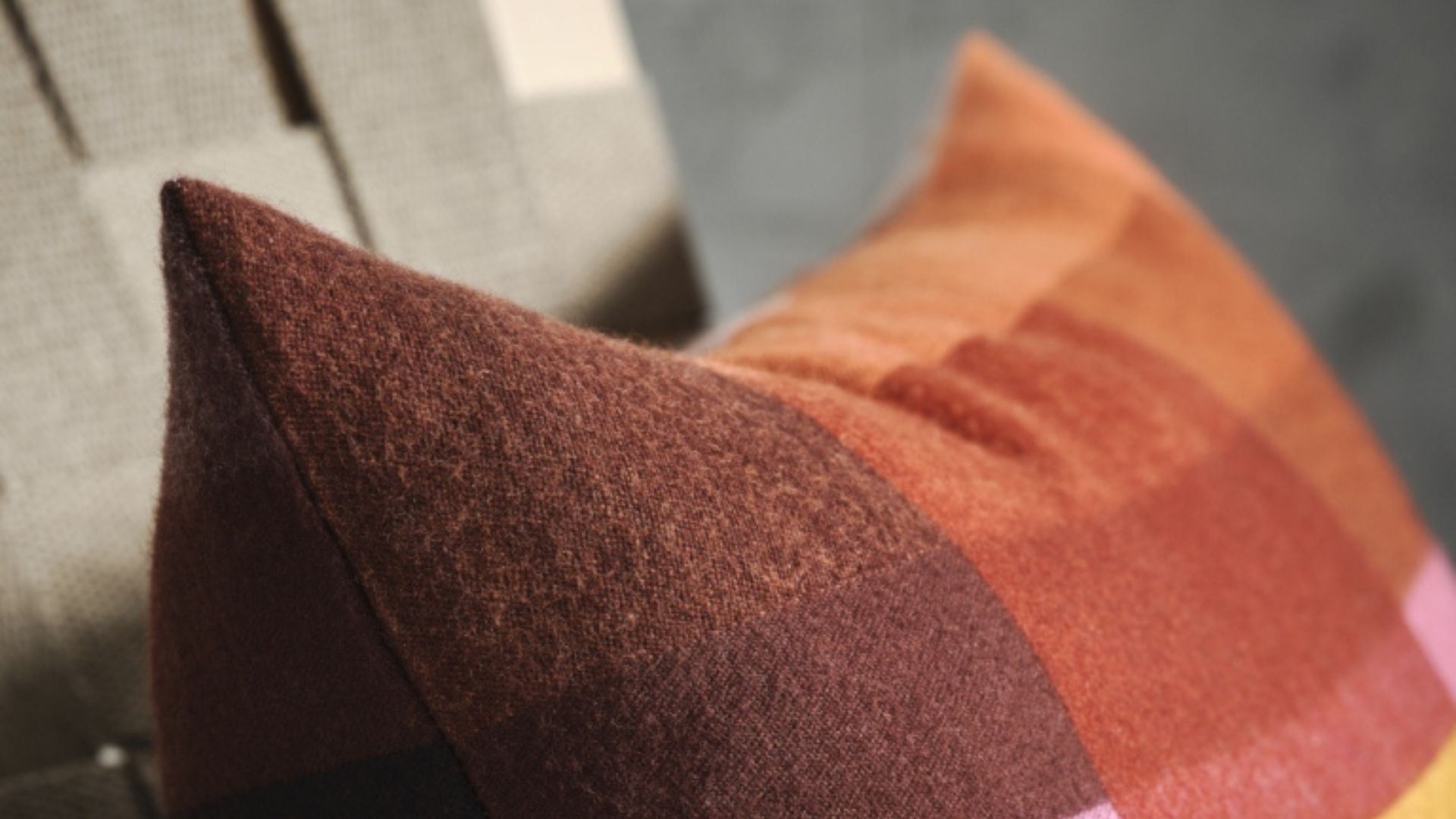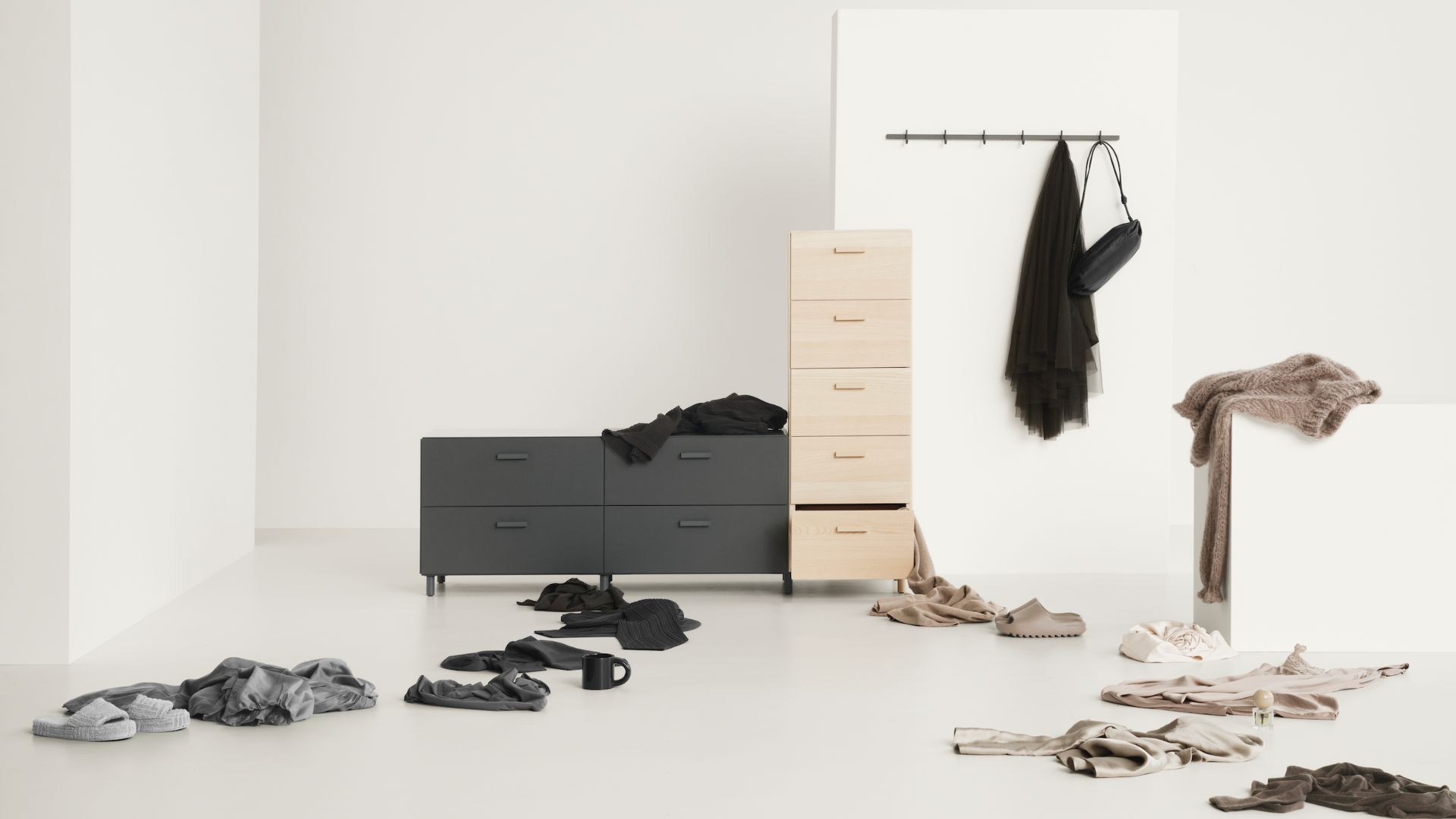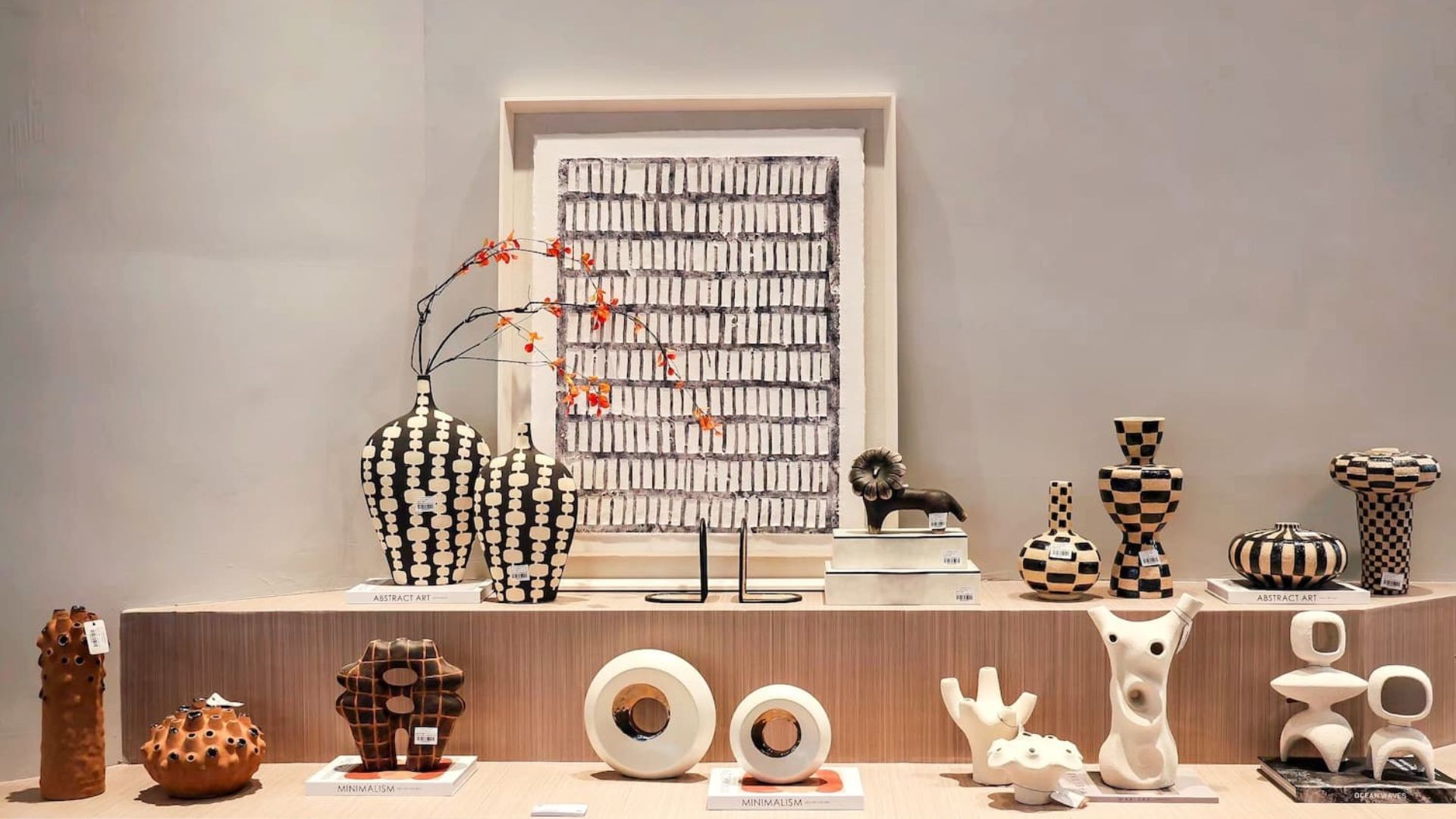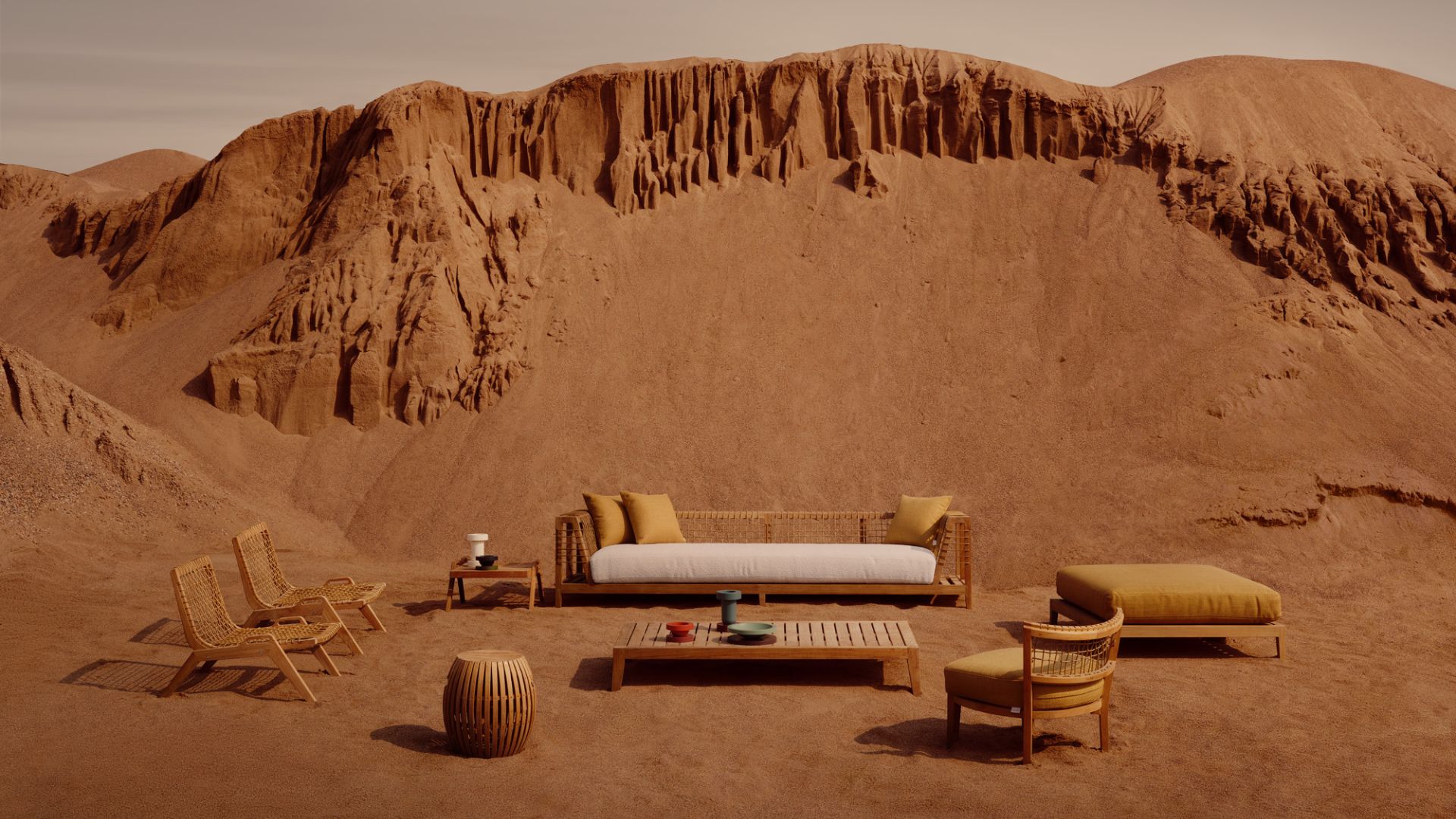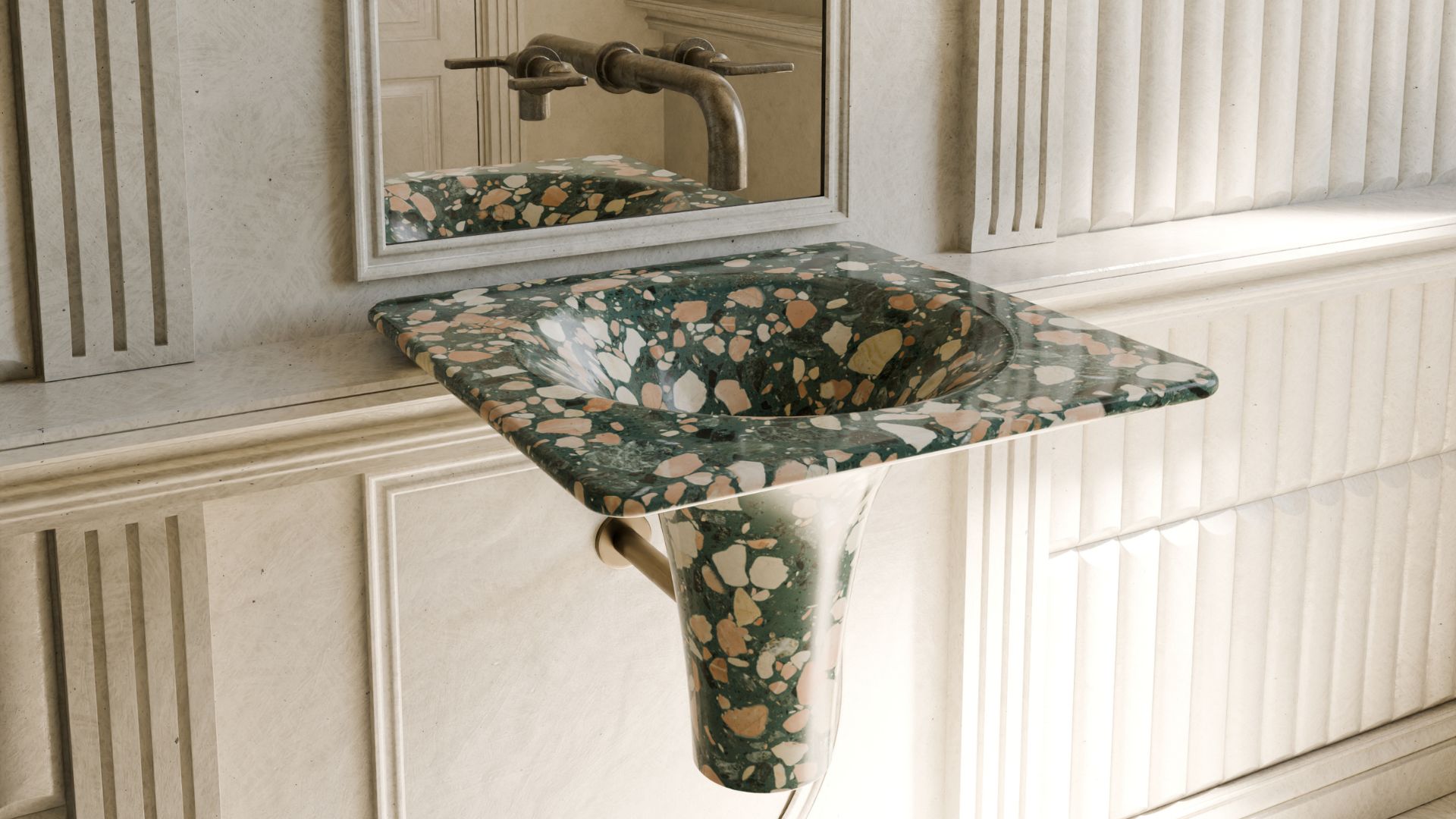Layer transforms recycled plastic into sustainable seating collection
London-based design studio Layer’s Vale Collection is wrapped in eco-friendly PET felt, revolutionizing sustainability in style while championing the fight against plastic waste.
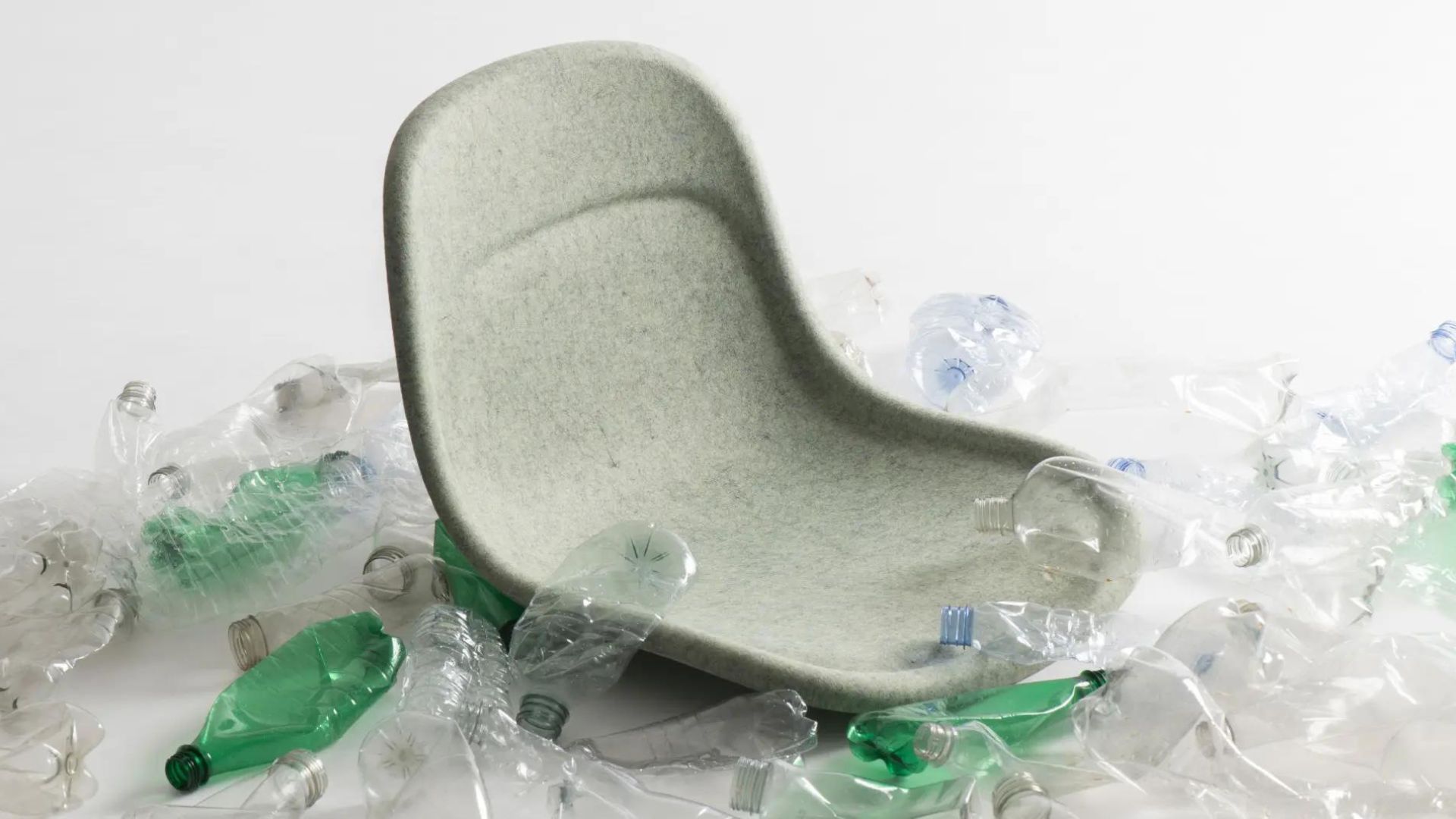
In response to the alarming escalation of plastic waste relentlessly inundating our oceans and landfills, brands and design studios are spearheading a wave of ingenuity and creativity to combat this pressing global crisis. Introducing the Vale collection, a collaboration between London-based design firm Layer and US furniture brand KFI Studios that transforms recycled plastic into stylish furniture.
The collection features chairs and stools fashioned from tactile felt material crafted from recycled PET bottles, more specifically 87 recycled plastic bottles for each chair. This plastic is spun into non-woven felt and then heat-pressed into the desired shape, resulting in a soft, impact-resistant material.
Vale includes a side chair, armchair, lounge chair with ottoman, low back counter stool, low back barstool, and high back barstool. Each piece is thoughtfully designed to blend comfort, durability, and eco-friendliness. Beyond its environmental merits, these pieces boast unparalleled durability and ease of maintenance, underscoring their role as a vital alternative in our quest for a greener future.
Gallery
Open full width
Open full width
Transforming waste into art: the production process
The production process of turning recycled plastic bottles into PET felt is a sophisticated method that transforms waste into a versatile, eco-friendly material. It begins with the collection of used plastic bottles from recycling centers, waste management facilities, and direct consumer collection programs. These bottles are transported to recycling facilities, where they undergo a thorough sorting process to ensure only PET bottles are selected, as different plastics require different recycling methods.
Once sorted, the PET bottles are thoroughly cleaned to remove contaminants such as labels, adhesives, and residues, typically using a combination of water and detergent. The cleaned bottles are then shredded into small flakes, which may undergo additional sorting to remove any remaining impurities.
The clean PET flakes are dried to remove moisture and fed into an extrusion machine, where they are melted and extruded through fine holes to create thin fibers. These fibers are cooled, solidified, and stretched to enhance their strength and elasticity. The fibers are then processed into a non-woven fabric through either needling, where barbed needles entangle the fibers, or hydroentangling, where high-pressure water jets bind them together.

The resulting PET felt is robust, flexible, and suitable for various applications, including furniture production. Once the PET felt is formed, it undergoes finishing processes to achieve the desired texture and properties. This may include heat setting to stabilize the fabric dimensions and surface treatments to enhance softness or durability.
The finished PET felt is then cut and shaped according to specific design requirements, such as those for Layer’s VALE collection of chairs and stools. PET felt boasts several advantages: it is highly durable and resistant to wear and tear, provides excellent sound absorption due to its dense structure, and offers good thermal insulation, contributing to the comfort of seating. Furthermore, being made from recycled materials, PET felt reduces the demand for virgin plastics and helps mitigate plastic waste.
The environmental impact of producing PET felt from recycled plastic bottles is significant. It diverts waste from landfills, where plastic bottles would otherwise take centuries to decompose, and the recycling process consumes less energy compared to producing new plastic from raw materials, resulting in lower greenhouse gas emissions. This transformation of waste into valuable, sustainable products is a prime example of how recycling can contribute to a more sustainable and circular economy. It addresses the issue of plastic waste while providing a versatile material that can be used in a wide range of applications, from furniture to insulation.

Timeless design, sustainable future
The shells are reminiscent of rolling hills, attached with simple bolts to achieve a minimalist aesthetic whilst also allowing for easy removal and recycling. It ensured they remain timeless and resistant to seasonal trends. Instead, the gently curved shell provides a calming and sophisticated feel that stands the test of time, while the rolled edge adds unique strength and a distinctive design element.
The name Vale, derived from the Middle English word for ‘valley,’ reflects the unique design feature of the rolled edge that gives the chairs a warm and inviting feel. Similar to the Eames Molded Shell Chair, the stackable design of Vale makes it ideal for various settings, including offices, institutions, and homes.
The recycled PET felt is available in six colors—Charcoal, Grey, Stone, Midnight, Sage, and Garnet—while the steel frame comes in seven shades—White, Black, Silver, Quartz Grey, Sapphire Blue, Pale Green, and Oxide Red. This array of colors allows for custom looks or coordinated monochromatic aesthetics. For additional comfort, an upholstered seat pad can be added, available in various textiles or COM.

A greener future
By utilizing PET felt, the Vale collection significantly reduces plastic waste by transforming discarded plastic bottles into valuable furniture components. This process exemplifies a circular economy approach, repurposing waste into new, useful products. Furthermore, the VALE collection promotes awareness of the potential of recycled materials, encouraging consumers and manufacturers to consider sustainable alternatives.
The success of the Vale collection could catalyze further innovations in sustainable materials and design practices, setting a new standard in the furniture industry. This shift in consumer preferences underscores a broader trend towards sustainability, influencing market dynamics and encouraging companies to adopt greener practices.
Layer’s approach with the Vale collection exemplifies how high-quality design can harmoniously blend with environmental responsibility, demonstrating that sustainability does not necessitate a compromise on aesthetics or functionality. Moreover, the VALE collection can serve as a blueprint for integrating sustainability into the core of product development.

As the trend towards sustainable living gains momentum, businesses across various sectors are likely to invest more in research and development of eco-friendly materials and production methods. Layer’s pioneering efforts could inspire collaborations and innovations that further enhance the sustainability quotient of consumer goods. This ripple effect could lead to widespread adoption of sustainable practices, significantly reducing the overall environmental footprint of the furniture industry and beyond.
“In a world facing myriad environmental challenges, it’s more important than ever to design thoughtful furniture that uses recycled and recyclable materials and can be easily disassembled for recycling at the end of its usable life,” says Layer.
“This was the driving force behind the design of Vale, a collection of chairs and stools with a pressed felt shell made from recycled PET plastic bottles. The plastic bottles are broken down and spun into a non-woven felt that is pressed under heat and pressure to create the seating elements of the collection.”






